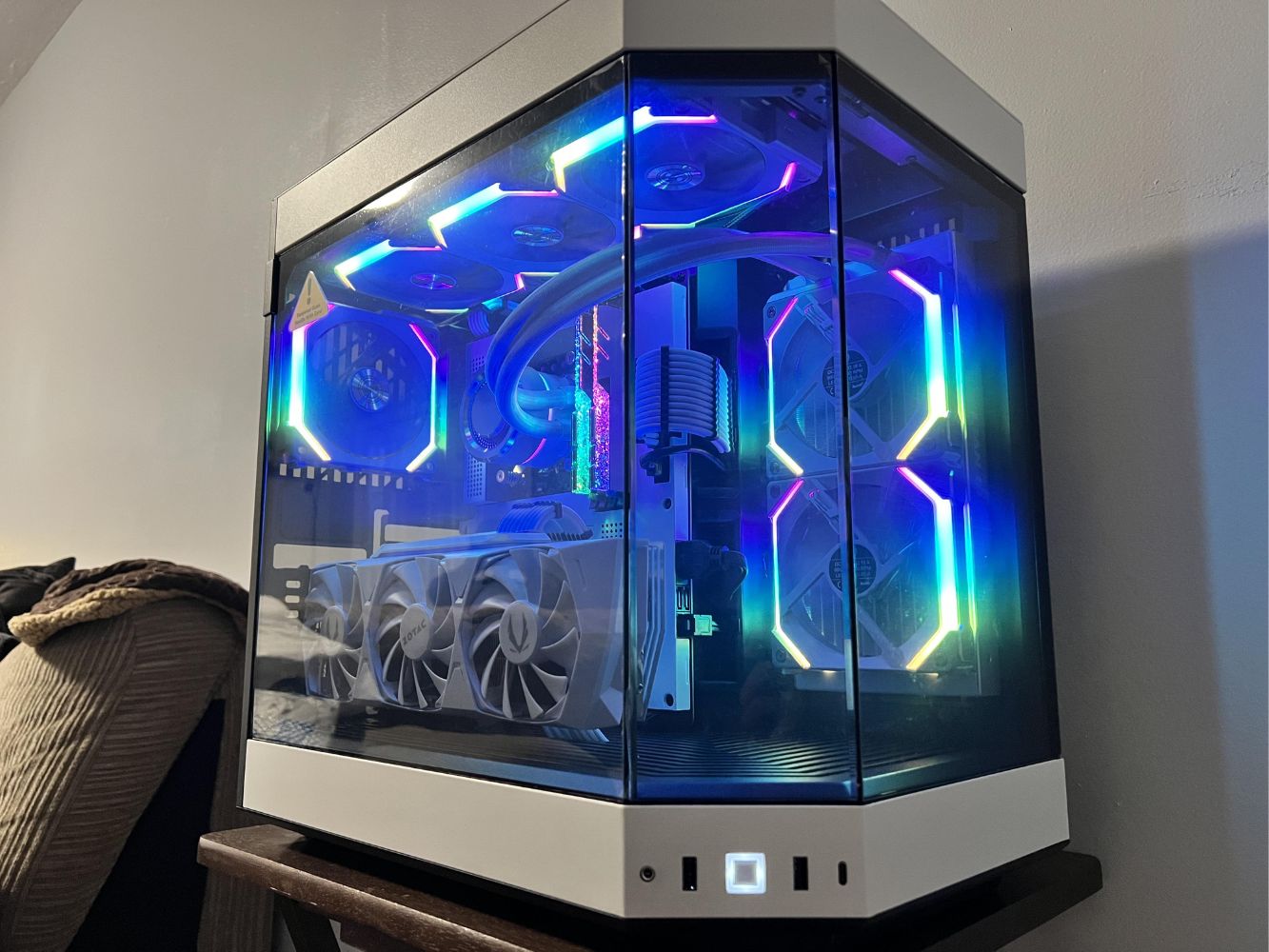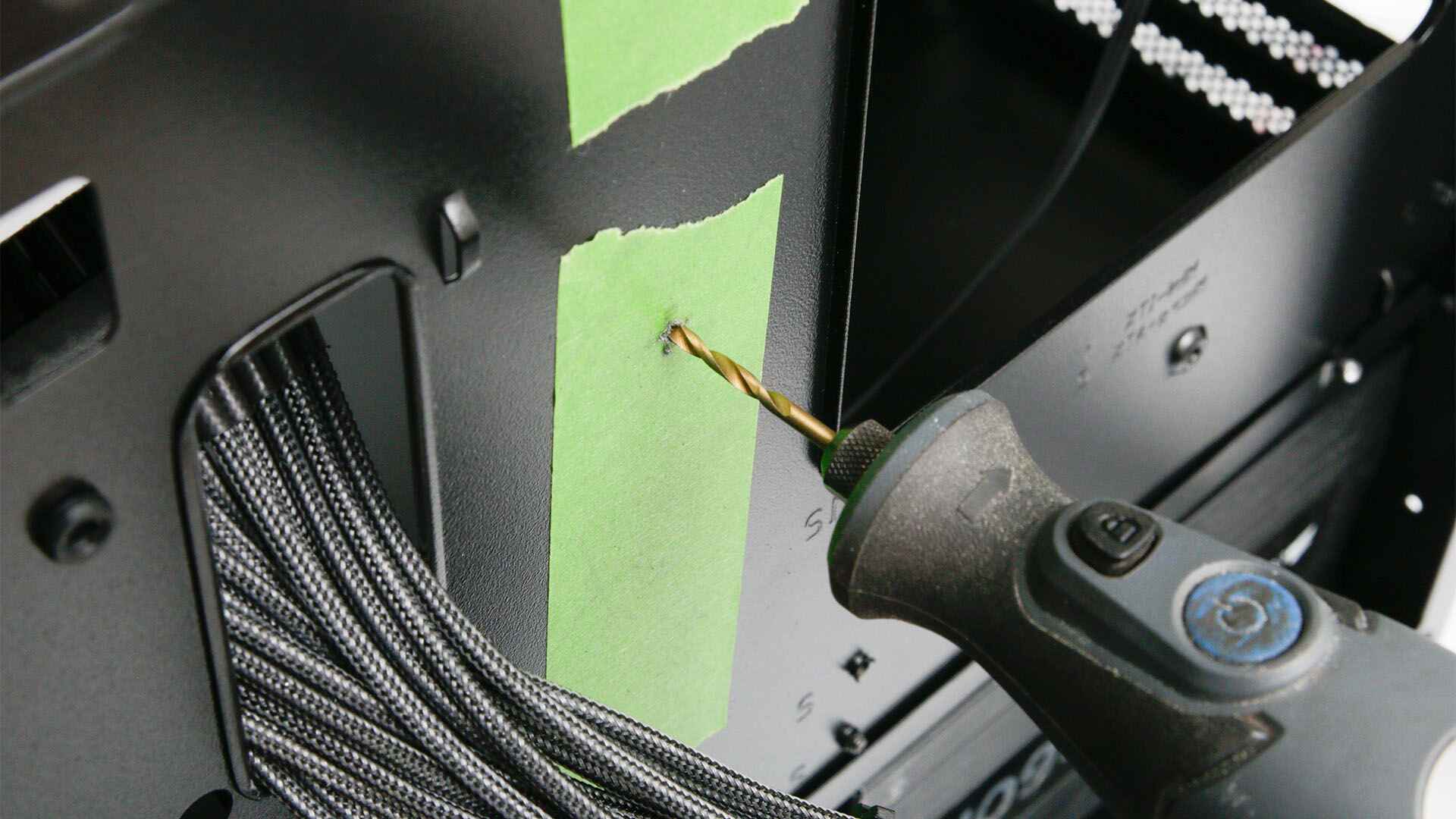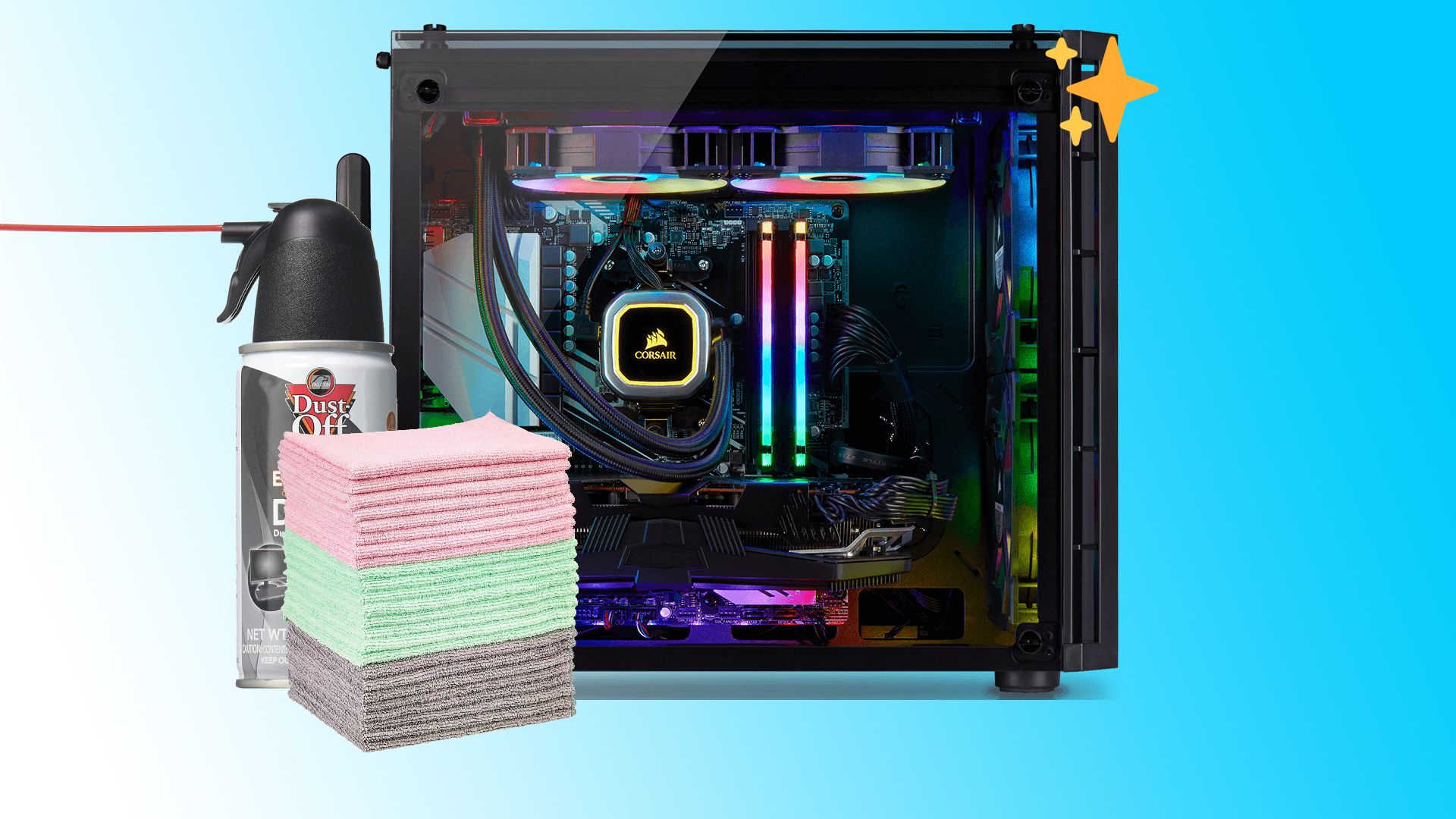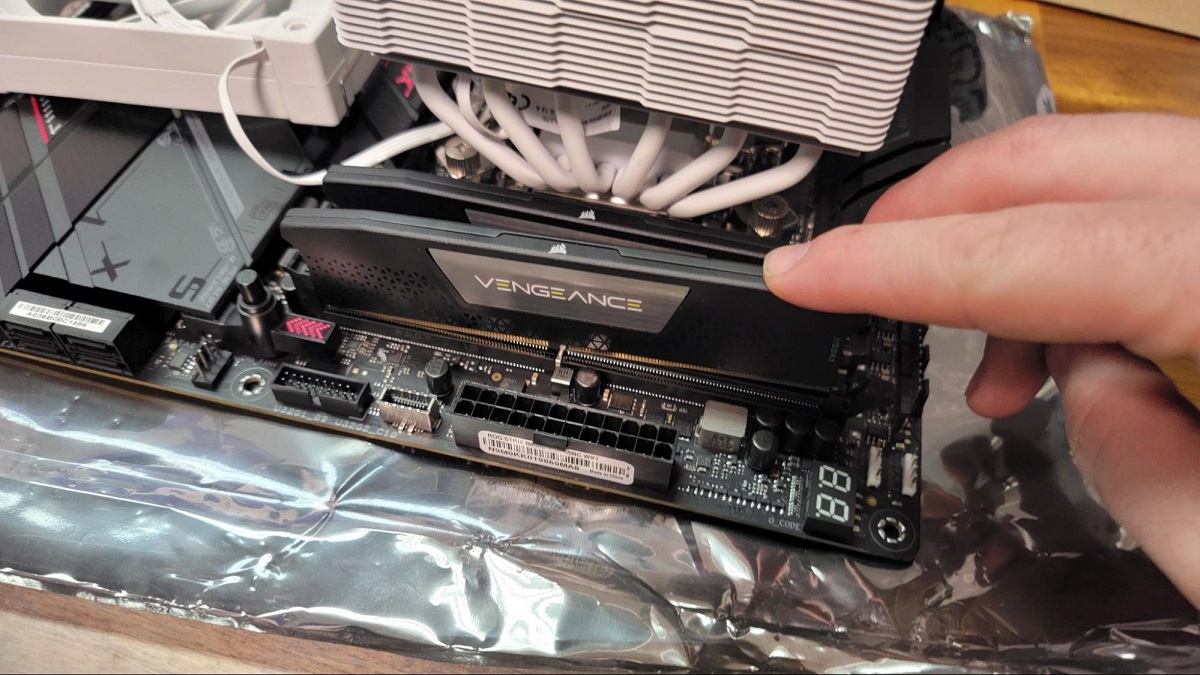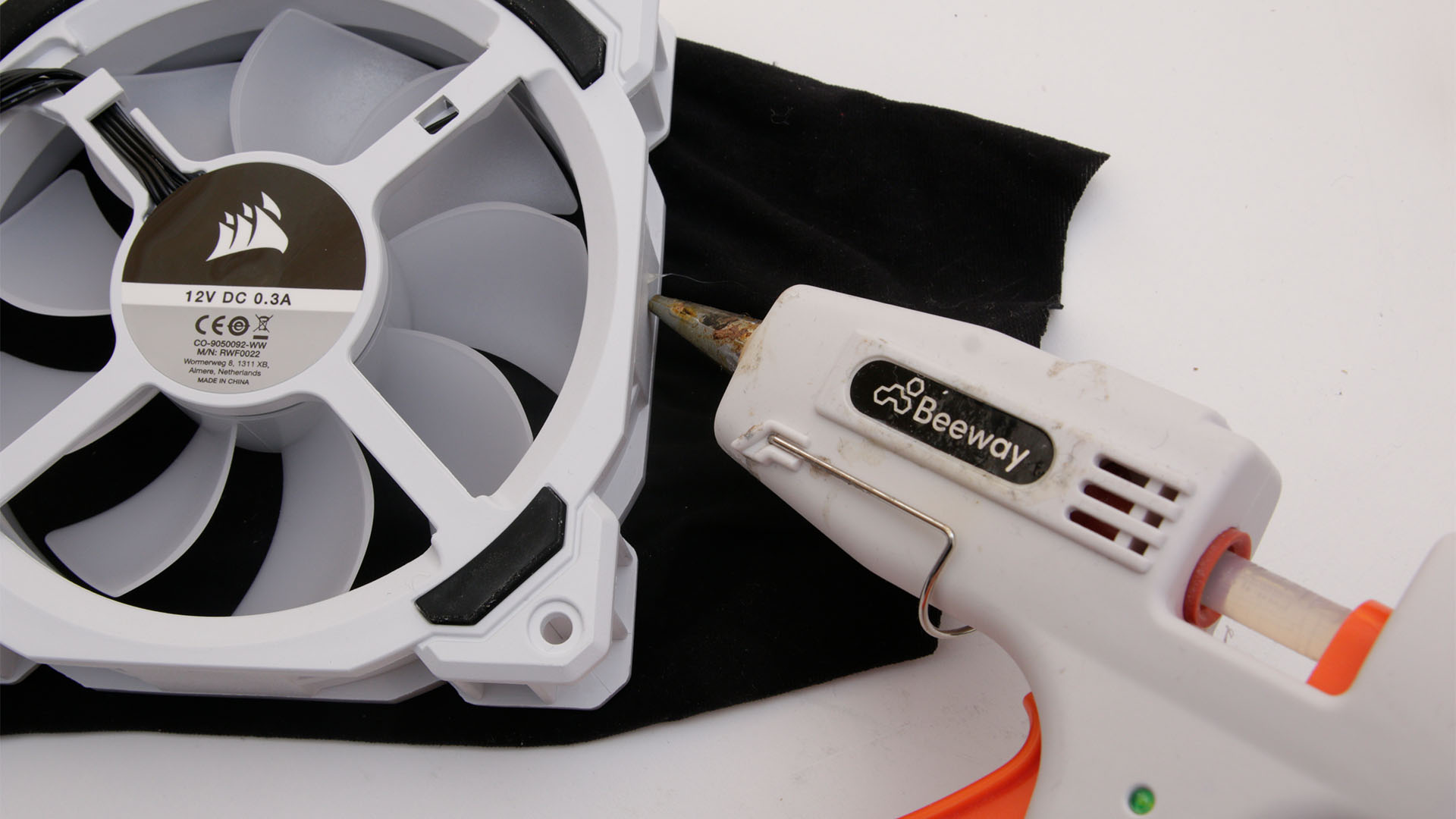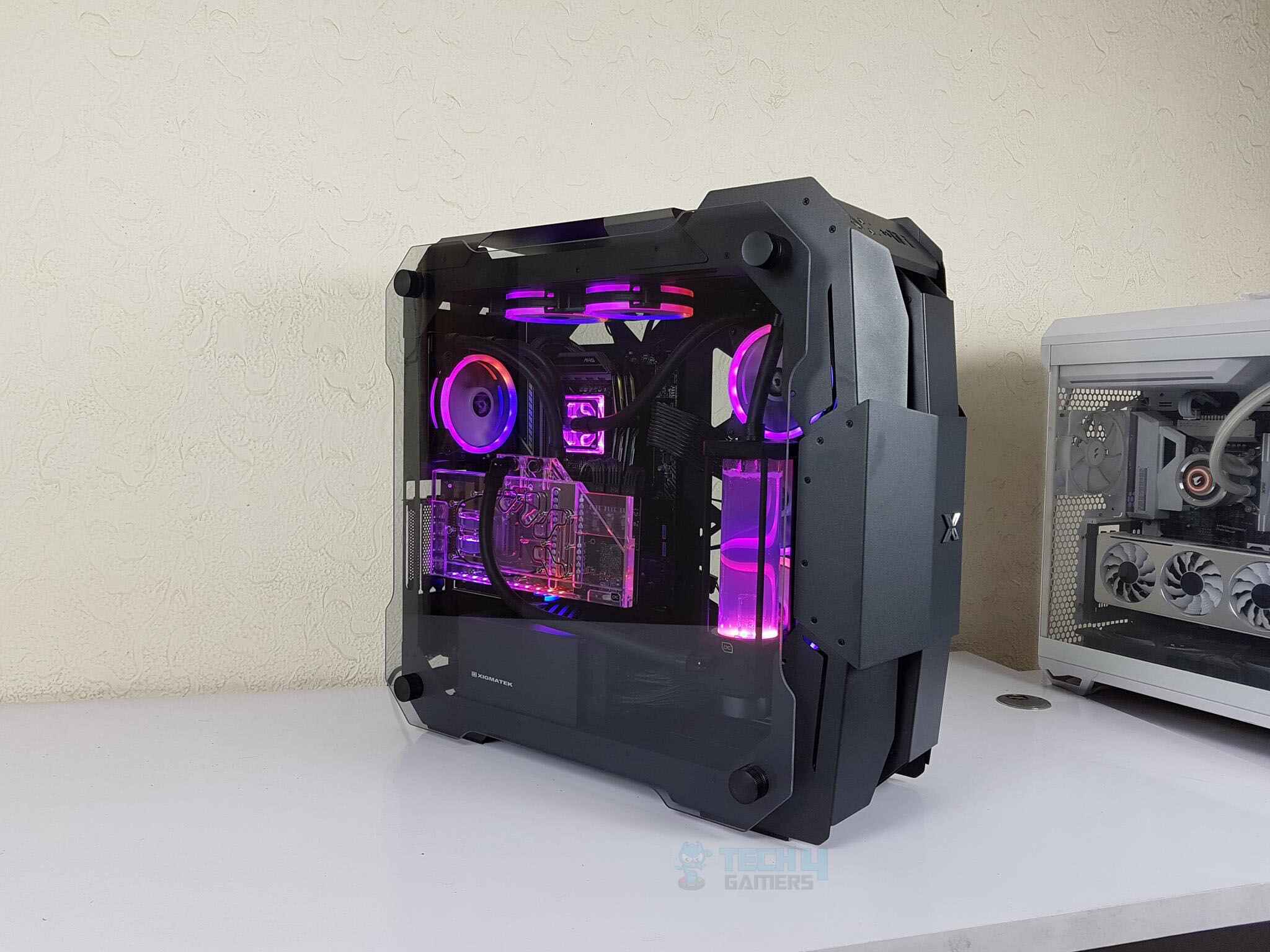Introduction
A PC case, also known as a computer chassis or tower, is one of the essential components of a desktop computer. It houses and protects the internal components, such as the motherboard, CPU, graphics card, and storage drives. PC cases come in various sizes, designs, and materials, offering different features and functionalities.
When it comes to purchasing a PC case, one of the crucial considerations is the price. The cost of a PC case can vary significantly, depending on various factors. Understanding these factors will help you make an informed decision based on your budget and requirements.
In this article, we will explore the factors that affect the price of PC cases, different price ranges of PC cases, and factors to consider when deciding on the price for a PC case.
Before diving into the details, it’s important to note that the price of a PC case should not be the sole determining factor in your purchase decision. The quality, features, compatibility, and overall build of the case are equally important. A well-chosen PC case can enhance the performance, aesthetics, and longevity of your computer system.
Now, let’s delve into the factors that influence the cost of PC cases and explore the different price ranges available in the market today.
Factors That Affect the Price of PC Cases
The price of a PC case is determined by several factors that contribute to its design, features, and overall quality. Let’s take a closer look at these factors:
- Construction and Material: The construction and choice of materials significantly impact the price of a PC case. Cases made of high-quality materials like aluminum or tempered glass tend to be more expensive than those made of steel or plastic. Additionally, cases with superior build quality and craftsmanship are likely to have a higher price tag.
- Size and Form Factor: PC cases come in various sizes and form factors, such as Mini-ITX, Micro-ATX, and ATX. Smaller cases designed for mini-ITX motherboards are generally less expensive than larger ATX cases due to the reduced materials and manufacturing costs.
- Aesthetics and Design: PC cases with unique and visually appealing designs often come with a higher price. Cases with RGB lighting, tempered glass panels, or intricate designs may cost more due to the added features and premium aesthetic appeal.
- Internal Space and Expandability: Cases with ample internal space and support for multiple storage drives, long graphics cards, and liquid cooling solutions tend to be pricier. Additional features like removable drive bays, cable management options, and multiple fan mounting points can also influence the cost.
- Brand and Reputation: Well-established and reputable brands in the PC industry often command higher prices for their cases due to their track record of quality and customer satisfaction. These brands typically invest in research, development, and innovation, resulting in higher-priced products.
- Included Accessories and Features: Some PC cases come bundled with extra accessories like pre-installed fans, fan controllers, PSU shrouds, dust filters, tool-less installation mechanisms, and modular components. These added features can increase the price but also provide added convenience and value.
It’s essential to consider these factors when determining your budget for a PC case. While it’s tempting to go for the cheapest option available, compromising on essential features or quality may lead to a subpar experience or limited upgrade options in the future.
Now that we have explored the factors influencing the price, let’s delve into the different price ranges for PC cases in the market.
Budget-Friendly PC Cases
For those on a tight budget or looking to build a basic computer system, there are plenty of affordable PC case options available. These budget-friendly cases offer decent quality and functionality without breaking the bank. Here are some key characteristics of budget-friendly PC cases:
- Affordable Price: Budget cases are typically priced under $50, making them a great choice for cost-conscious individuals.
- Solid Construction: While budget cases may not feature premium materials like aluminum or tempered glass, they are often constructed from durable steel or sturdy plastic to provide adequate protection for your components.
- Simple Aesthetics: Budget cases usually have a straightforward and minimalist design, focused more on functionality than visual appeal.
- Standard Features: These cases often come with standard features like front USB ports, tool-less drive bays, and decent cable management options to ensure a hassle-free building experience.
- Limited Extras: Budget cases may have limited additional features such as RGB lighting or pre-installed fans, although some models may surprise you with a few extra perks.
While budget-friendly cases may not offer the same level of customization or premium features as higher-end options, they can still serve as a reliable and affordable housing solution for your computer components. Just be sure to check compatibility with your hardware and ensure proper airflow for optimal cooling.
Next, let’s explore the mid-range price range for PC cases and what you can expect in terms of quality and features.
Mid-Range PC Cases
If you’re willing to invest a bit more in your PC case, mid-range options provide an excellent balance between cost and features. These cases offer better build quality, improved aesthetics, and additional functionality compared to budget-friendly options. Here are some features commonly found in mid-range PC cases:
- Higher Quality Materials: Mid-range cases often feature sturdier construction and may incorporate premium materials like tempered glass or aluminum for a more refined and premium look.
- Enhanced Aesthetics: Mid-range cases tend to have more visually appealing designs and may include features such as RGB lighting, tempered glass side panels, and sleek, modern aesthetics.
- Improved Airflow and Cooling: These cases often offer better ventilation and more extensive fan or radiator support, allowing for improved cooling performance.
- Upgraded Features: Mid-range cases may include additional features like removable dust filters, more accessible cable management solutions, and tool-less installation mechanisms for easier component installation and maintenance.
- Expanded Compatibility: They typically accommodate a wider range of motherboard sizes and have better clearance for larger graphics cards and CPU coolers.
- Brand Reputation: Mid-range cases often come from reputable brands known for their consistent quality and customer satisfaction.
Mid-range PC cases strike a good balance between affordability and enhanced features. They are ideal for gamers, enthusiasts, or those who want a visually appealing computer setup without breaking the bank. Investing in a mid-range case can provide a more enjoyable building experience and ensure that your components are properly protected and cooled.
Now, let’s move on to the higher end of the PC case market and explore what premium options have to offer.
High-End PC Cases
For enthusiasts, gamers, and professionals who demand the best in terms of design, features, and build quality, high-end PC cases deliver unparalleled excellence. These top-of-the-line cases cater to those who are willing to invest in a premium housing solution for their high-performance components. Here are some notable features commonly found in high-end PC cases:
- Premium Materials and Craftsmanship: High-end cases are crafted with the utmost attention to detail and often feature premium materials such as brushed aluminum, tempered glass, or even exotic materials like carbon fiber.
- Exceptional Aesthetics: These cases are designed with aesthetics in mind, featuring unique and eye-catching designs, customizable RGB lighting options, and elegant finishes.
- Advanced Cooling Solutions: High-end cases prioritize superior thermal performance, offering extensive fan placements, liquid cooling support, and airflow optimization features to keep your components running at optimal temperatures.
- Customizability and Modularity: They often provide modular components, allowing for easy customization and personalization. These cases may offer interchangeable panels, modular drive cages, or additional accessory options for enhanced flexibility.
- Extensive Space and Cable Management: High-end cases provide ample space for high-end components, multiple storage drives, and elaborate custom water cooling loops. They also incorporate robust cable management systems to ensure a clean and organized build.
- Exceptional Build Quality: These cases are built to last, with meticulous attention to detail, reinforced structural integrity, and premium finishes.
High-end PC cases often come from respected and renowned manufacturers who are known for their commitment to quality and innovation. While they may come with a higher price point, these cases offer the ultimate housing solution for demanding users who require the best in terms of performance and aesthetics.
Now that we’ve explored the high-end PC case options, let’s take a look at custom PC cases and the unique benefits they provide.
Custom PC Cases
For those looking to create a truly unique and personalized computer system, custom PC cases offer endless possibilities. Custom cases allow you to design and build a case from scratch or modify an existing case to suit your individual preferences and requirements. Here are some key aspects to consider when it comes to custom PC cases:
- Unparalleled Customizability: Custom cases offer complete freedom when it comes to design, aesthetics, and functionality. You can choose every aspect of the case, from the materials used to the layout and the inclusion of specific features.
- Unique Aesthetics: Custom cases provide the opportunity to showcase your creativity and personality. Whether you opt for a sleek and minimalist design or something bold and eye-catching, the choice is entirely up to you.
- Integrate Specific Features: With a custom case, you can incorporate specific features tailored to your needs. This might include specialized cooling systems, extensive storage configurations, or even unique components like custom-made reservoirs or lighting solutions.
- Showcase Expert Craftsmanship: Custom cases often reflect the craftsmanship and skill of their creators. These cases can be artisanal creations that showcase intricate detail and meticulous attention to design and build quality.
- Challenges and Complexity: Creating or modifying a custom case requires a certain level of expertise, experience, and knowledge of PC hardware and case design. It can be a time-consuming and intricate process that may require specialized tools and resources.
- Community and Inspiration: The world of custom PC cases has a vibrant community of enthusiasts who share their ideas, creations, and guides. Engaging with this community can provide inspiration, knowledge, and even support during your custom case journey.
Custom PC cases are not for everyone and require a significant investment of time, effort, and resources. However, for those who are passionate about building their dream computer system and desire a one-of-a-kind creation, custom cases offer an unparalleled level of personalization and satisfaction.
Now that we’ve explored custom PC cases, let’s move on to the factors you should consider when deciding on the price for a PC case.
Factors to Consider When Deciding on the Price for a PC Case
When determining the price range for your PC case, it’s essential to consider several factors that align with your needs, preferences, and budget. Here are some key considerations to keep in mind:
- Budget: Consider your budgetary constraints and determine how much you are willing to spend on a PC case. Setting a budget will help narrow down your options and prevent overspending.
- Intended Use: Evaluate the purpose of your computer system. If you’re building a basic office PC, a budget-friendly case may suffice. However, if you’re a gamer or plan to overclock your system, investing in a higher-end case with better cooling capabilities may be beneficial.
- Desired Aesthetics: Determine the visual appeal you’re aiming for. If you prioritize sleek and minimal design, you may opt for a budget-friendly or mid-range case. On the other hand, if you desire an eye-catching and customizable look, a higher-end or custom case would be ideal.
- Expansion and Compatibility: Consider the future needs of your computer system. If you plan to add more storage drives, upgrade components, or utilize liquid cooling solutions, investing in a case with ample space and compatibility options will provide flexibility and save you money in the long run.
- Brand and Warranty: Research and evaluate the reputation and warranty offered by different PC case manufacturers. Reputable brands often provide excellent customer support and longer warranty periods, ensuring peace of mind and support in case of any issues.
- Premium Features: Determine if any premium features are essential to you, such as RGB lighting, tempered glass panels, or modular designs. These features often come at an additional cost, so consider if they are worth the investment for your specific needs.
By considering these factors, you can make an informed decision about the price range that aligns with your requirements and budget. Remember that it’s crucial to strike a balance between cost and quality, ensuring that your PC case provides the necessary protection, functionality, and aesthetics for your computer system.
Now that we’ve explored the factors to consider when deciding on the price for a PC case, let’s wrap up this article with a summary of the key points discussed.
Conclusion
Choosing the right PC case is crucial for building a functional and visually appealing computer system. The price of a PC case is influenced by various factors, including construction and materials, size and form factor, aesthetics and design, internal space and expandability, brand reputation, and included accessories and features. Understanding these factors helps in making an informed decision based on your budget and requirements.
For those on a tight budget, budget-friendly PC cases offer a cost-effective solution without compromising on essential features. Mid-range and high-end PC cases provide better build quality, improved aesthetics, and additional functionality, catering to gamers, enthusiasts, and professionals seeking superior performance and visual appeal.
For those who desire complete customization and a unique look, custom PC cases offer unlimited creative possibilities, allowing individuals to design and build their dream computer enclosure. However, custom cases require specialized knowledge and expertise, along with a significant investment of time and resources.
When deciding on the price for a PC case, it’s important to consider factors such as budget, intended use, desired aesthetics, expansion and compatibility needs, brand reputation, and premium features. Finding the right balance between cost and quality ensures that your PC case meets your requirements and protects your components effectively.
In conclusion, the price of a PC case is a crucial consideration when building your computer system. By understanding the factors influencing the price and considering your specific needs and budget, you can make an informed decision and choose a PC case that complements your hardware, provides the necessary functionality, and enhances the overall aesthetics of your system.







